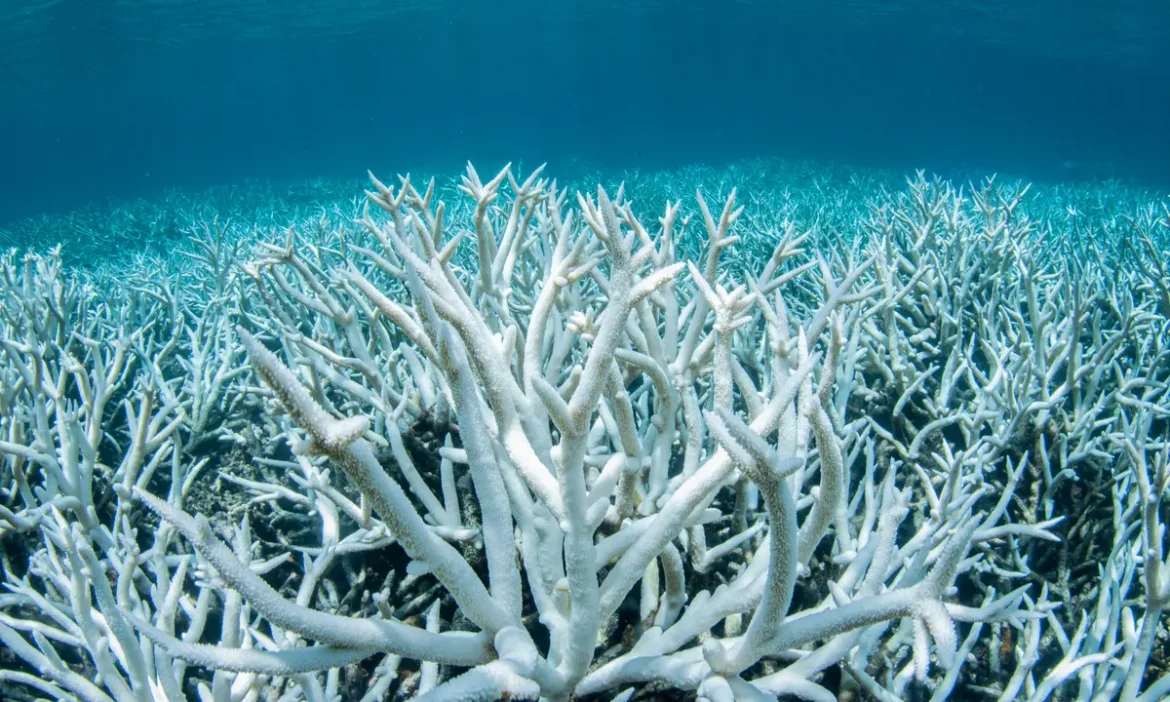US government scientists have confirmed that Global heating has pushed the world’s coral reefs to a fourth planet-wide mass bleaching event that is on track to be the most extensive on record.
The National Oceanic and Atmospheric Administration’s Coral Reef Watch said that some 54% of ocean waters containing coral reefs have experienced heat stress high enough to cause bleaching.
A global bleaching event is declared when at least 12% of corals in each of the main ocean basins – Pacific, Atlantic and Indian – experience bleaching-level heat stress within a 12-month period. The declaration also requires confirmed reports of bleaching.
Coral Reef Watch also confirmed the world’s largest coral reef system – Australia’s Great Barrier Reef – had been through its most widespread heat stress event on record in 2024.
The first global bleaching event happened in 1998 with 20% of the ocean’s reef corals exposed to a level of heat stress high enough to cause bleaching. The second event, in 2010, saw 35% reaching that threshold, and the third from 2014 to 2017 peaked at 56%.
Dr Derek Manzello, who is the Coral Reef Watch director, said that the current bleaching was likely to surpass the previous most widespread event soon “because the percentage of reef areas experiencing bleaching-level heat stress has been increasing by roughly 1% per week”.
Read also: Former oil boss warns of price rises after Ukraine infrastructure attacks
NOAA’s threshold for the onset of bleaching relates to the amount of accumulated heat corals are facing at any given time, known as degree heating weeks (DHWs). For example, a 1 DHW is accumulated if corals are subjected to temperatures 1C above the usual maximum for seven days. Coral Reef Watch considers 4 DHWs as a bleaching threshold.
Coral reefs are rich in biodiversity and provide habitat to a quarter of all marine species while covering less than 1% of ocean area. Reefs provide food and tourism income to millions of people and protect coastlines, but are considered to be one of the most vulnerable ecosystems to global heating.
The current global event started in early 2023 and in the northern hemisphere summer reefs across the Americas bleached from record levels of heat stress.
Mass bleaching has been confirmed throughout the tropics, NOAA said, including Florida, the Caribbean, Brazil, many countries across the south Pacific, the Middle East and in parts of the Indian Ocean from Indonesia’s west coast to reefs off east Africa.
Story was adapted from the Guardian.
